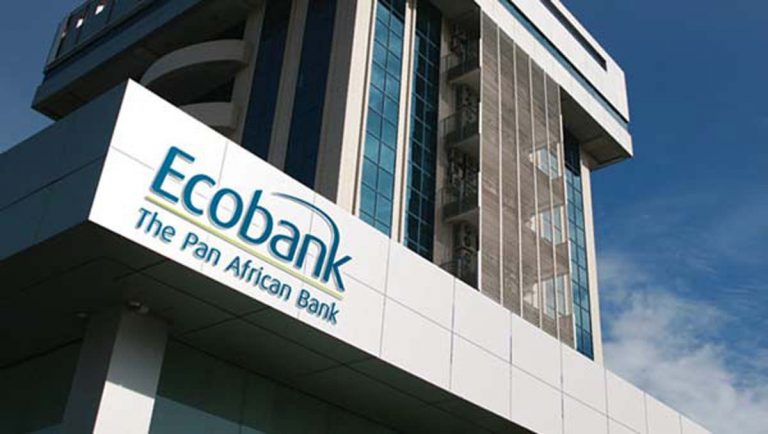Ecobank Group, operating under Ecobank Transnational Incorporated says gross earnings in the first half of 2023 improved by 38% to N695.714bn, from N503.633bn; while net profit for the period improved to N105.22bn, up by 36% from N77.312bn in the corresponding period of 2022.
On the balance sheet, total assets stood at N20.445tr, 53% up from N13.373tr; of which totals loans and advances for the period rose 58% from N5.073tr in the 2022 full-year ended December 31, to N8.033tr. Customer deposits climb 53% up to N14.709tr from N9.597tr.
Specifically, interest income rose to N445.897bn, 41% better than the previous N317.225bn, buoyed by income from customer loans and advances of N245.995bn from N168.715bn, followed by investment securities of N103.124bn, as against N96.392bn in the first half of 2022. Interest expense grew by 60% from N111.655bn to N178.69bn, boosted by N103.48bn paid on customer deposits, from N67.346bn; resulting in net interest income of N267.006bn, 30% better than the previous N205.569bn.
Fee and commission income rose 20% up from N112.208bn to N134.375bn, lifted by the N66.453bn earned in corporte finance fees, up from N112.673bn; ahead of creit related fees and commissions, which rose to N33.799bn from N29.963bn; and the N23.689bn in card management fees, up from N20.969bn. Expense dropped to N13.05bn from N16.026bn, representing a 19% decline, after other fees paid stood at N12.423bn down from N15.484bn. Trading income was up 49% to N102.194bn from N68.367bn, a breakdown of which showed that translation gains less losses soared from N35.561bn to N156.282bn; while transaction gains less losses was a negative N52.653bn from a positive N28.351bn; made worse by the N1.433bn trading loss on securities from the previous N4.453bn gain. Net investment income fell to N2.267bn from N3.396bn; just as other operating income soared by 127% from N5.832bn to N13.246bn. These resulted in a non-interest revenue of N239.048bn, 38% better than the previous N173.778bn; leaving operating income at N506.055bn, compared with N379.348bn reported in the first half of last year.
Staff expenses was up by 25% from N92.441bn to N115.387bn; depreciation and amortization stood at N23.085bn from N21.159bn; other operating expenses grew to N136.406bn from N98.713bn. Operating expenses was up 29% to N274.878bn from N212.316bn. Operating profit before impairment charges and taxation climbed 38% up from N167.033bn to N231.176bn. Impairment charges on financial assets was up 5% from N48.018bn to N50.459bn, out of which impairment charges on loans and advances fell to N38.417bn from N56.969bn; made better by the N18.862bn recoveries, just s previous half-year’s N18.751bn. Impairment charges on other financial assets jumped from N9.8bn to N18.291bn; and another N12.612bn as “unwinding of impairments.”
Operating profit after impairment charges before taxation increased from N119.014bn to N180.717bn; just as net monetary loss arising from hyperinflation economies soared 202% from N10.068bn to N30.402bn.
Profit before tax inched 38% from N108.955bn to N150.314bn; tax expense increased by 43% to N45.094bn from N31.643bn; resulting in profit after tax of N105.22bn from N77.312bn, translating to Earnings Per Share of N3.19 each from N2.20.
Commenting on the scorecard, Jeremy Awori, Chief Executive of Ecobank Group, described it as a demonstration of “the benefits of our diversified business model, resilient balance sheet and our commitment to serving our customers.
“We achieved these results despite continued challenging macroeconomic conditions in the second quarter, with significant weaknesses in African currencies, high consumer prices and tepid economic growth. We have made meaningful progress in formulating our strategic roadmap, which will provide the blueprint for our Growth, Transformation and Returns agenda,” he stressed.
The CEO assured of “opportunities to build stronger and better customer relationships in our businesses, forge strategic partnerships and be the go-to Payments bank, leveraging our superior platforms. In addition, we will take forward our transformation and growth agenda for our corporate, commercial and consumer banking businesses. Notably, achieving our goals will require even more discipline in execution, proactive risk management, and focus on delivering for our customers.”
Going forward, he said the prudent management of the group’s balance sheet and capital remains a priority, just as it also continues “investing in our best in-class technology, retaining and attracting talent while reinforcing the right culture.”
Trending Today
Menu








